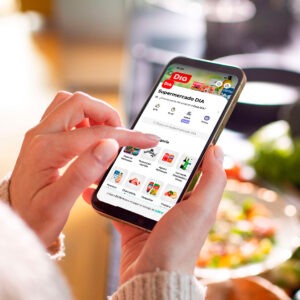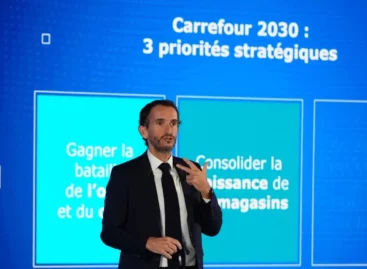Q-Commerce Shoppers Opt For Smaller Basket Sizes, Notes DIA
Quick-commerce shoppers in Spain purchase baskets of smaller volumes and value, but shop on a weekly basis, an analysis of customers by Glovo and DIA has shown.

Shoppers who opt for rapid deliveries make an average of 1.4 orders per week, and their baskets are usually smaller, compared to those of consumers purchasing via traditional e-commerce channels, such as DIA.es, the retailer noted.
Purchases at DIA via the Glovo app include an average of ten to 15 products and range between €25 and €30 per order, on average.
Focus On Fresh Food
The data also revealed that most shopping baskets include various product categories, including beverages, eggs and dairy products, and fresh products, such as fruit, vegetables, meat and fish. Other popular items include bakery and pastry products, frozen-food SKUs, and drugstore and cleaning products.
The top three most frequently purchased products via quick commerce are DIA natural mineral water, DIA Ramblers lager beer, and bananas per unit.
DIA Láctea whole and semi-skimmed milk, DIA El Molino bread loaves, and two-kilogram bags of ice cubes are also among the top ten most popular products.
The data indicated that quick-commerce consumers are opting for rapid delivery, to complement their monthly shopping baskets. These include essential products that are needed urgently, as well as fresh food.
Shoppers in large cities, such as Madrid, Barcelona and Valencia, place a greater number of orders.
Last-Minute Shopping
The study also found that shoppers use quick commerce at the end or beginning of the week, with a preference for Saturdays.
Soft drinks, wine, beer, and frozen foods, such as pizzas, ice creams and ice, dominate the grocery baskets on Saturdays.
Shoppers place larger but cheaper orders on Mondays, covering a wider range of categories, indicating that they are stocking up their pantries.
Sunday baskets reflect typical ‘emergency’ purchases, such as batteries, eggs, rice, soups, or last-minute orders to fill the pantry, DIA added.
Moreover, quick-commerce customers prefer to make their purchases in the mid-morning or mid-afternoon, avoiding the times of greatest customer saturation in physical stores.
ESM
Related news
Carrefour Unveils 2030 Strategy, To Focus On France, Spain And Brazil
🎧 Hallgasd a cikket: Lejátszás Szünet Folytatás Leállítás Nyelv: Auto…
Read more >Half of Hungarians already search for products using AI
🎧 Hallgasd a cikket: Lejátszás Szünet Folytatás Leállítás Nyelv: Auto…
Read more >Glovo Adds New Personalisation Features To Its App
🎧 Hallgasd a cikket: Lejátszás Szünet Folytatás Leállítás Nyelv: Auto…
Read more >








